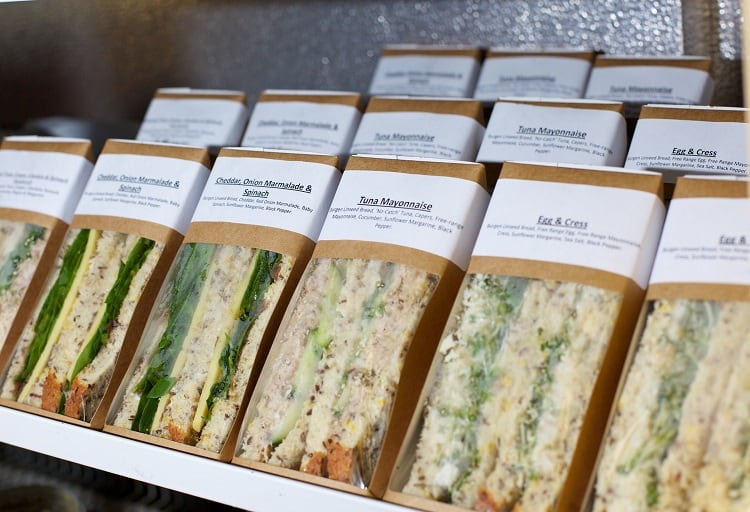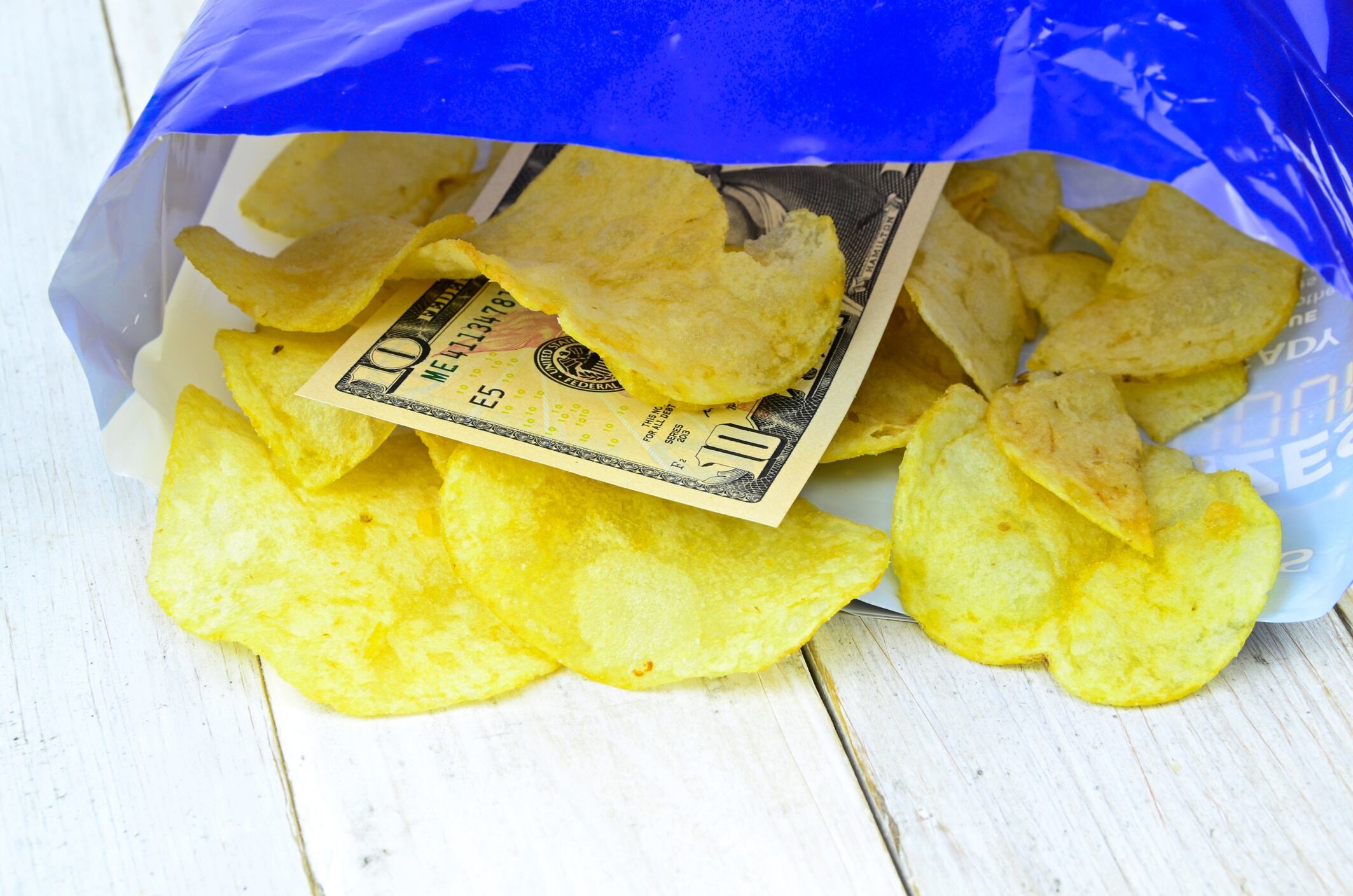Key takeaways:
- Hedge fund Irenic Capital is pushing for a private equity buyout of Upper Crust owner SSP, betting the travel food giant’s value is being overlooked on the public market.
- SSP is fighting back with a £100 million share buyback and strategic cost cuts to prove it can deliver returns without surrendering control.
- The showdown signals a wider trend of investors eyeing food-to-go operators as prime takeover targets in the post-pandemic travel boom.
When hedge funds come to buy a baguette, they’re not looking for lunch – they’re looking for leverage. That’s exactly what’s happening to SSP Group, the global food-to-go giant behind Caffè Ritazza, Millie’s Cookies and Upper Crust, which proudly calls itself the baguette specialist. Fresh off its Q4 earnings report, which showed steady revenue growth but softer performance in mainland Europe, the company’s found itself in the crosshairs of Irenic Capital, a fund with a taste for quiet disruption and a reputation for getting what it wants.
SSP runs more than 2,800 outlets across airports and train stations – essentially the world’s biggest sandwich shop. But lately, the business has looked vulnerable. A share price down 8% this year, soft sales in Europe and slowing travel growth have left the market restless. That’s when Irenic swooped in, quietly building a stake and whispering to private equity firms that SSP could shine brighter away from the public markets. The pitch? The company’s undervalued by as much as 50%, ripe for margin gains and just one strategic spin-off away from a feast.
The board’s response was cool but clear: Thanks for your interest. We’ll handle it. Within days, SSP rolled out a £100 million share buyback – both a confidence move and a signal that management isn’t about to be bullied into a sale.
CEO Patrick Coveney insists the group’s strategy is working. The numbers partly agree: revenue up 8% to £3.7 billion, operating profit up 11%, and margins recovering to 6.2%. But beneath the upbeat numbers, the cracks are showing – sales across mainland Europe remain weak and rising costs are biting harder than a day-old baguette.
Why airport baguettes are suddenly big money

At first glance, travel food doesn’t sound sexy. But think about it: SSP sits at the crossroads of global mobility and impulse snacking. Every delayed flight, every train change, every 6am latte from a concourse café – it all flows through companies like this. Those captive customers make for steady revenue, and investors love predictability.
That’s why the money men are circling. Irenic isn’t shouting from rooftops like the old-school corporate raiders – it’s working the phones, courting buyout firms and quietly convincing them that SSP’s margins could be juiced under private ownership.
It’s the same logic that drove last year’s takeover of The Restaurant Group (owner of Wagamama) by Apollo Global Management after months of shareholder pressure. That deal showed what happens when patient investors lose patience: management folds and the public company vanishes into private equity’s embrace.
Julie Palmer, partner at restructuring specialists Begbies Traynor, says SSP’s latest trading update shows “a resilient business with the flexibility to weather current economic uncertainties,” but she acknowledges that outside pressure could sharpen its edge.
“SSP’s still finding the right balance between price hikes and cost efficiencies,” she said following SSP’s Q4 trading update. “Its announcement of a £100 million buyback just goes to show its confidence that it can continue to benefit from one of the few areas of the economy still doing well – travel. If it continues to lower net debt as effectively as it has been doing, SSP appears all set for the road ahead.”
That confidence, however, is exactly what makes SSP so appealing to hedge funds like Irenic. Stable, predictable and cash-generative – all the things that make a business solid also make it a target. Market agitators love a good turnaround story; they love it even more when the hard work’s already done and the reward’s in reach.
In SSP’s case, a buyout could change the food-to-go game completely. A private owner might streamline brands, exit slow markets like Germany and pour capital into higher-growth regions such as Asia and the US. That means new contracts, more competition for airport real estate and potentially a reshaped supplier network. Every bakery that sells baguettes, cookies, pastries or coffee into SSP’s ecosystem has a stake in what happens next.
A bun fight with consequences

SSP’s defensive playbook looks familiar: cut costs, clean up underperformers and reassure investors with buybacks. But it’s also a balancing act. If it trims too hard, it risks dulling the customer experience that drives those daily millions of on-the-go transactions. And unlike a packaged snack brand, it can’t simply shrink a SKU lineup – its products live in the unpredictable world of human travel.
The fund circling SSP is betting on efficiency. It sees a business slowed by corporate layers and cautious decision-making, one that could be leaner, faster and more profitable under private ownership. But here’s the catch: in food-to-go, efficiency and customer experience rarely share the same table. You can’t spreadsheet your way to a warm sausage roll.
To its credit, SSP’s not running scared. It’s working to get ahead of investor demands – cutting overheads, improving supply chain logistics, testing menu simplifications and refreshing the look of its travel cafés. The company’s already exited loss-making sites in Germany and is reviewing its Italian business, while doubling down on North America and Asia. In other words, it’s doing many of the things a private owner would demand but on its own terms.
Still, the line between proactive management and capitulation is thin. If SSP’s share price doesn’t start to climb meaningfully by early 2026, expect louder calls for ‘strategic alternatives’ – a euphemism that almost always ends with a sale.
When finance meets food-to-go

The SSP saga taps into a deeper trend: the financialization of food. Bakery counters, coffee kiosks and station snack bars might not seem like Wall Street material, but investors now see them as cash-flow engines with global scalability. Travel food, in particular, has proven surprisingly durable – even in turbulent times.
That has two implications for the bakery and snacks sectors. First, it underscores the value of resilience: brands that survive downturns with a clear identity and tight operations are suddenly hot property. Second, it signals that ownership models are changing. PE firms increasingly dominate the mid-tier of food and hospitality, often pushing harder, faster and leaner than public shareholders would.
That pressure can spur innovation or squeeze the joy out of it. Private ownership could fuel investment in modernization, digital ordering, automation and even menu diversity. But it could also mean tighter supply contracts, faster product cycles and relentless cost discipline. For suppliers, the challenge will be staying nimble without losing authenticity.
Palmer puts it more diplomatically: “The focus on cost efficiency’s understandable, but SSP also knows what it is and what it does. That clarity’s crucial as it navigates this period of change.” She’s right. Identity matters. SSP’s bread and butter has always been consistency – a croissant that tastes the same in Gatwick as it does in Dubai. Investors may see that as a formula to tweak, but tamper too much and the flavor can disappear.
The real meal deal

For the wider food-to-go sector, SSP’s tussle is a warning shot. Investors are treating croissants and cookies as capital opportunities – and when capital gets hungry, it eats quickly.
If SSP stays public, its management will need to prove it can deliver returns without sacrificing the soul of the business. If it goes private, expect a leaner machine – possibly a smarter one – but a company laser-focused on profitability. Either way, this showdown reveals how far financial activism’s reached into the heart of food culture.
When activists come to buy a baguette, they’re not just after lunch – they’re eyeing the entire counter, the brand behind it and the profits that rise with the dough. And for the rest of the food-to-go market, that’s a bite worth paying attention to.





